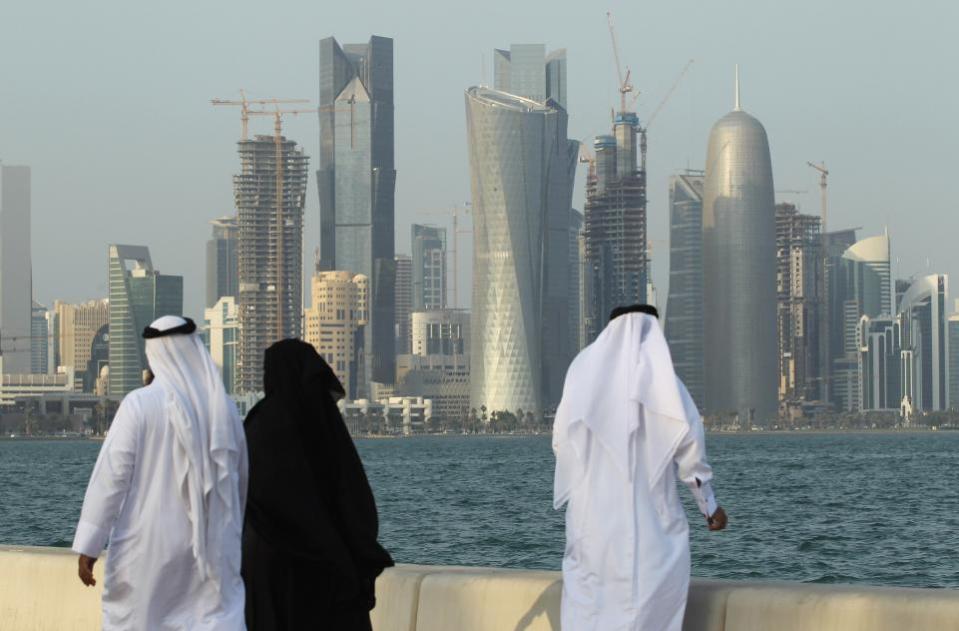Qatar Is Quickly Adapting to the Saudi Led Blockade
A true test of character is how we as individuals, companies, governments perform during times of danger or adversity.
Do we shrink from it? Or do we tap a wellspring of invention and courage?
For the past four months, the State of Qatar has experienced its very own crisis – victims of an arbitrary land, sea and air blockade imposed by Saudi Arabia, Egypt, the UAE and Bahrain.
Yet, if this embargo was intended to bring Qatar to its knees, it has had precisely the opposite effect. Having sensed the danger, we have seized the opportunity and bolstered ourselves politically and economically.
For many years, our nation has pursued a strategy of global economic diversification, investing wisely and for the long-term. As a result, Qatar has established strong trade relationships with nations all over the world.
And, since June 5 – when the blockade began – we have redoubled our efforts to bolster existing relationships and forge new ones. The results are already plain to see.
Our economy has shown its resilience and has successfully readjusted to the embargo. New opportunities are arising every day as a result, and the quest for self-sufficiency has become an ambition shared by all residents of Qatar.
Across the board, day-to-day life in Qatar from an economic perspective has been uninterrupted and is in many ways improving.
New markets are being identified. One of the most current examples is the recently announced agreement for Qatar to export liquefied natural gast (LNG) to Bangladesh over the next 15 years. Qatar has been quick to identify South Asia as a new and expanding market for LNG, and we will take full advantage of this opportunity.
Qatar’s newly opened Hamad Port has launched new maritime routes to various countries including Oman, Turkey, India and Pakistan, thereby bypassing Jebel Ali port in the UAE. As a result, shipping costs have fallen by 31 percent since the blockade’s imposition.
Similarly, due to air space restrictions we have created new trade routes that have delivered increased efficiencies. Indian food suppliers used to make a stop in the UAE and Saudi Arabia en route to Qatar. Now they fly their products on cargo planes direct to Qatar, which in the long-term will prove more cost effective and time efficient.
The plethora of alternatives to food from Saudi Arabia and UAE will also have a long-term effect on keeping prices down.

The disruption has even created new opportunities in air travel: with Qatar Airways’ excess flight capacity we have been able to expand our service offerings in existing high profit markets and even add 24 new markets within the next 12 months.
Investors will wonder about Qatar’s financial exposure to the blockading nations.
While the embargo is accelerating Qatar’s diversification of our economy to knowledge-based enterprises, oil and gas still account for more than half of our GDP. Indeed, thanks to this mineral wealth, we are highly liquid: we have the assets and the security we need to ensure economic stability long into the future.
Our foreign assets and our foreign investment are more than 250 percent of our GDP, which not only allows us to defend our currency and the economy, and diversify into innovative new directions.
We do not in any way welcome or invite this blockade. It has had grievous humanitarian implications by separating parents from children, students from schools, and loved ones from each other. But we do see it as a catalyst for new thinking and new commercial and diplomatic opportunities.
While this approach is bearing fruit and rendering uninterrupted commerce and quality of life for most Qataris, we must not forget those against whom the embargo is aimed: the ordinary people who wish to work, learn, and live among us.
As delegates from around the world gather in Washington this week for the annual meetings of the World Bank and the International Monetary Fund (IMF), we will take up issues of global concern, including the world economic outlook, poverty eradication, economic development, and aid effectiveness.
The world can be assured that the breach in regional solidarity and the humanitarian crisis imposed by our neighbors is not forgotten, and that Qatar will continue to do its part in ensuring continued global growth and regional development.
A dangerous precedent has been set with the imposition of this illegal blockade, which defies long-established international conventions. However, with this danger comes an opportunity to address this gross injustice – an opportunity that the global financial community gathering in the US capital must seize.
Ali Shareef Al Emadi is Minister of Finance of the State of Qatar.
Related Articles


